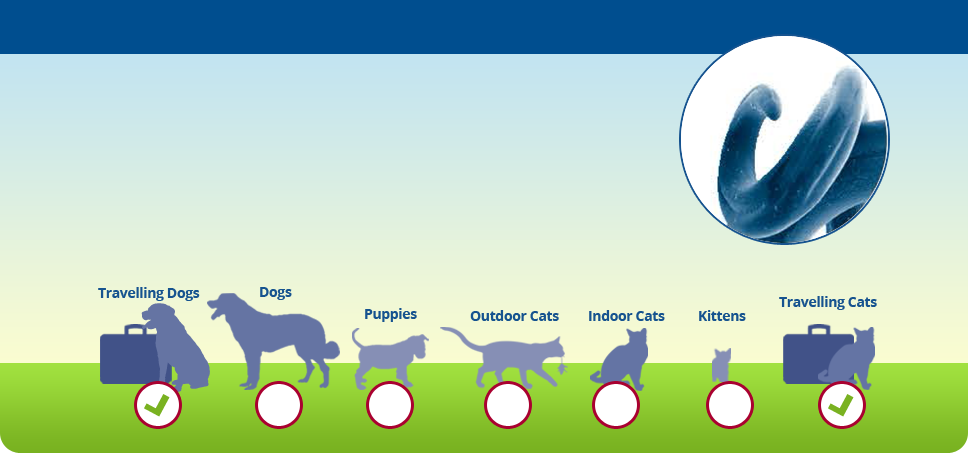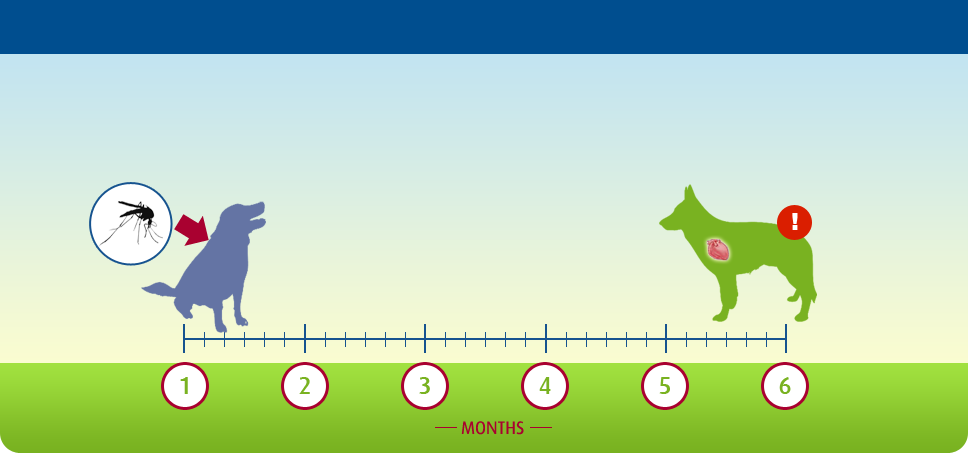
Please rotate your mobile for a better view
Wormopedia - Heartworms



Heartworm (Dirofilaria immitis)
Heartworms (Dirofilaria immitis) are not found in the UK since they are spread by infected mosquitoes. However if you are travelling to Europe, Africa, Asia the US and Australia, it is worth talking to your vet about because a heartworm infection can prove fatal.
- AT RISK -

Heartworm (Dirofilaria immitis)
Although both cats and dogs can be infected with heartworm, dogs are most susceptible.
A dog’s insides provide an ideal environment for the transmitted worms to mature into adults, mate, and produce offspring...
A dog’s insides provide an ideal environment for the transmitted worms to mature into adults, mate, and produce offspring...

Heartworm (Dirofilaria immitis)
Symptoms
Symptoms of heartworm can take months to develop but may include:
- cough
- loss of appetite
- difficulty breathing
- cats may also experience vomiting or sudden death

Heartworm (Dirofilaria immitis)
Lifecycle...
Larvae mature into adults in the pulmonary arteries and the right heart; female adults release microfilariae in the blood
Mosquito bites dog and transmits infective microfilariae
Microfilariae develop in mosquito to infective microfilariae. Development in the mosquito is temperature-dependant; infective larvae can develop in 8 days at 30°C
Mosquito ingests microfilariae with blood meal

Heartworm (Dirofilaria immitis)
Infection stages
It can take about 6-7 months in dogs, and around 8 months in cats from the time your pet is bitten by an infected mosquito to the time when heartworm starts to damage the pet’s health. That’s a long time after the holiday ends... If you do suspect your pet has contracted heartworm disease, act promptly as your vet can perform a number of diagnostic tests, with a view to surgery or drug therapy, to try to save him.

Heartworm (Dirofilaria immitis)
Risk to humans
Although humans can contract heartworm, we are not ideal hosts, so the risk of developing serious illness as a result of exposure to this parasite is low.

Heartworm (Dirofilaria immitis)
Spread in Europe
Heartworm is carried by mosquitoes so pets are more at risk in sunnier climes such as southern Europe – notably Portugal, Spain, South of France, Greece, Croatia, Bosnia, Czech Republic and Turkey.

Heartworm (Dirofilaria immitis)
How to get rid of them
Prevention of heartworm is definitely better than cure, so do talk to your vet about preventative measures such as a vet strength wormer if you are planning to travel with your pet to an endemic area. Check out our travelling abroad section »





this...